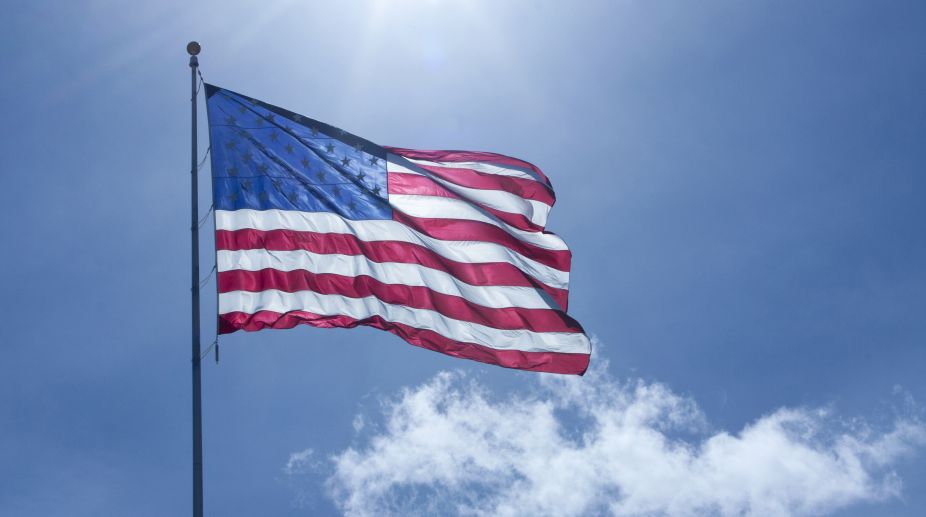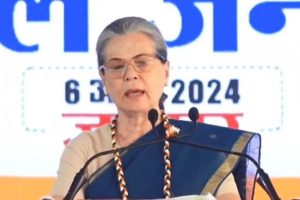American President Donald Trump has sent a positive signal in his first telephone conversation with Prime Minister Modi on Tuesday by inviting him to Washington. If he decides to go, this will be Modi's fifth visit to the US since he took over – this to a country which had once denied him a visa.
According to the White House statement Trump told Modi that “United States considers India a true friend and partner in addressing challenges around the world.” Despite Indian apprehensions about the Trump presidency it is believed that his attitude towards India may turn out to be yet another positive chapter in India-US bilateral ties.
Advertisement
New Delhi had obviously prepared the ground after Trump’s victory in November when a high-powered team led by Foreign Secretary S Jaishankar went to Washington to discuss with the Trump team all broad issues including a meeting between the two leaders.
Trump is unknown and untested for India. During the campaign he declared, "Indian and Hindu community will have a true friend in the White House". He has also called India a ‘natural ally’ adding, “ we are going to do a lot of business with India. We are going to have a phenomenal future together.” With the growing influence of the Indian Diaspora on Capitol Hill, Trump will certainly see the advantages of doing business with India. The American billionaire already has family business connections with India.
President Obama had gone out of the way to send signals about India’s importance to the US. He was the only president who had visited India twice and he also hosted Prime Minister Manmohan Singh as the first state guest in November 2009. He had continued the same warmth towards Prime Minister Modi inviting him to Washington twice. Obama has supported India’s claim on the UN Security Council membership and also in the Nuclear Suppliers Group.
How would Trump deal with India? Will he give the same importance as Obama did? On bilateral relations, with growing bipartisan support and the hugely influential Indian Diaspora, one does not expect any radical change in the Trump administration’s policy. The ties have reached such a stage that not much may be rolled back. The telephone conversation itself is a great start for now.
On the positive side, there are many areas of converging interests. There is already increasing military cooperation between the two besides huge defence deals. India is an attractive market for American business interests. On India's concerns such as cross-border terrorism, “President Trump and Prime Minister Modi resolved that the United States and India stand shoulder to shoulder in the global fight against terrorism,” according to the President's spokesperson. Trump has used strong words on the need to curtail ISIS and curb immigration from countries that export terror. India is concerned about the growing ISIS influence among its younger generation.
New Delhi will watch Trump’s policy towards Pakistan and China. During the campaign he declared that Pakistan was the world’s most dangerous enemy and the US needed to work closely with India to check it. Similarly on China also, he has been making remarks describing it as one of the US's top adversaries which should make Beijing nervous. He is also keen to raise India’s profile as a counter to China. “They also discussed security in the region of South and Central Asia, ” the White House statement said, indicating his mood.
The other areas include immigration, outsourcing, trade, student visas and H1B visas, the Indian IT industry and Indian auto part makers. On the economic side, opening up of the US oil sector, as Trump promised, could lead to price stability globally. It could also throw open massive business opportunities for Indian oil companies.
Trump’s inaugural speech on January 20 was emphatic about his protectionist tendencies asking Americans to "buy American and hire Americans", which could hit Modi’s Make in India project. Trump also wants American corporates to relocate their plants from Mexico and other countries. India too will be affected if American plants in India are relocated.
Secondly in the IT sector India leads the outsourcing of Americans. Trump has canvassed for increasing the visa fee to discourage US compnaies from hiring workers from outside. He had earlier termed the H1B visa regime unfair but later softened his stand to woo Indian American votes. Many Indian software companies like Infosys, Wipro and Tata Consultancy may be affected by cut in outsourcing. Cutting down on immigration has been a running theme of his campaign. But Trump may be unpredictable because he sometimes mimicked Indian call centre workers and other times praised Indian wokers.
The third area is trade. Trump vowed that he would slap duties, taxes and tariffs. This would affect India where several American companies including Ford and Microsoft have set up their plants. Trump’s threat to scrap Obamacare would also be bad bews for Indian pharmaceutical companies. This sector provides the second biggest exports to the US accounting for $66 billion.
It is too early to predict what Trump will do. But the beginning is good as it is expected that the two nationalist leaders- Trump and Modi – could do business and speak the same language. No doubt one telephone call is not enough to predict the future but South Block is pleased because the White House called Modi ahead of other leaders including those in Beijing, Germany and even Moscow.











